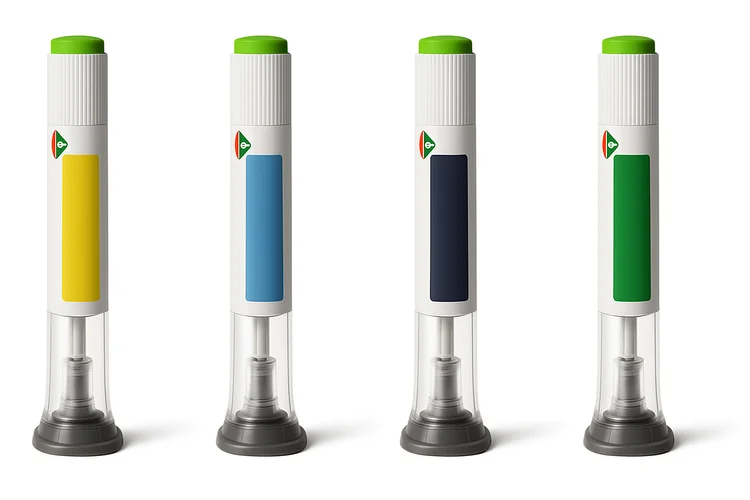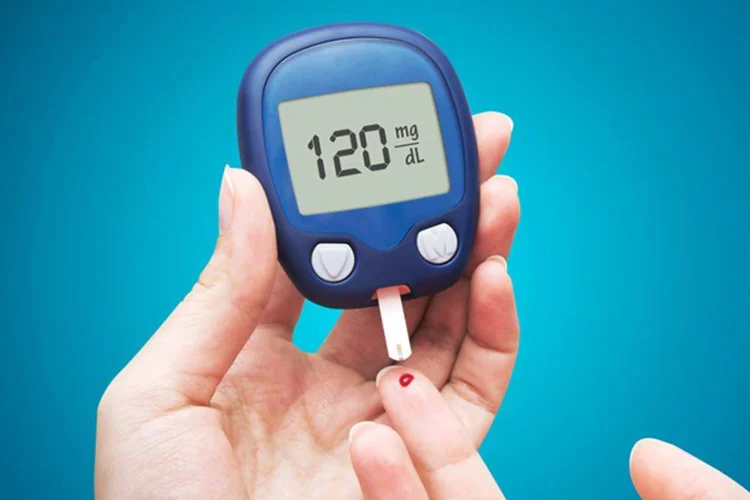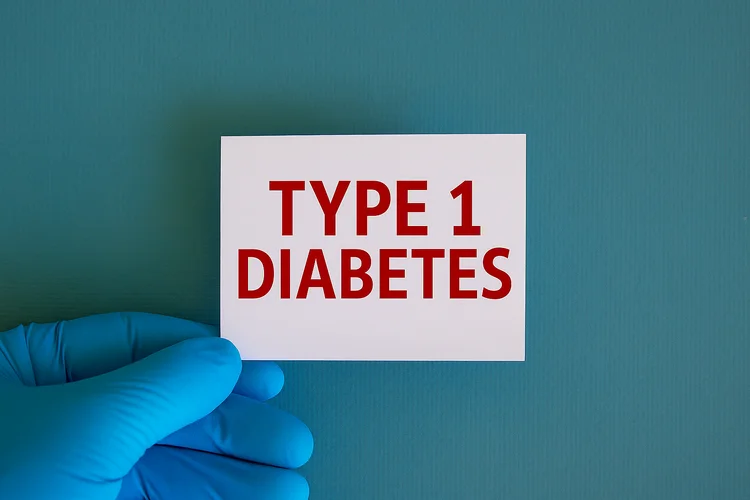What Is Dulaglutide?
Dulaglutide is a prescribed medication for individuals with type 2
diabetes that helps improve blood sugar regulation and
may, in some cases, aid with weight
reduction.
It belongs to the class of medicines called GLP-1 receptor agonists (glucagon-like
peptide-1 receptor agonists), which act by imitating the natural
hormone responsible for controlling glucose levels and appetite. The
medication is given as a once-weekly injection and is most often known by
the brand name Trulicity®.

Dulaglutide Mechanism of Action: How Does Work?
Dulaglutide helps manage blood sugar and appetite through four main actions:
- It triggers the release of insulin when blood sugar levels are high, which helps prevent spikes after meals.
- It lowers glucagon, a hormone that tells the liver to release stored sugar.
- It slows the emptying of food from the stomach, helping you feel full for longer and keeping sugar levels steadier.
- It activates GLP-1 receptors in the brain that control hunger, which can reduce how much food you eat.
Together, these effects keep blood sugar within a healthier range and may also support gradual weight loss when paired with balanced eating and lifestyle changes.
Dulaglutide vs Other GLP-1 Medications
Dulaglutide is one of several GLP-1 receptor agonist medicines used to treat type 2
diabetes and, in some cases, to support weight management.
Although these drugs work in a similar way to influence blood sugar and appetite,
they differ in how often they are taken, how they are given, and the
specific conditions they are approved to treat.
| Medication | Receptor Targets | Dosing Frequency and Route | Used For |
|---|---|---|---|
| Dulaglutide (Trulicity®) | GLP-1 only | Weekly injection (under the skin) | Type 2 diabetes |
| Liraglutide (Victoza® / Saxenda®) | GLP-1 only | Daily injection (under the skin) | Type 2 diabetes (Victoza), weight management (Saxenda) |
| Semaglutide (Ozempic® / Wegovy® / Rybelsus®) | GLP-1 only | Weekly injection (under the skin) | Type 2 diabetes (Ozempic), weight management (Wegovy) |
| Tirzepatide (Mounjaro) | GLP-1 & GIP | Weekly injection (under the skin) | Type 2 diabetes, weight management |
Who Can Benefit from Dulaglutide?
Dulaglutide may be suitable for adults with type 2 diabetes who require more support with blood sugar control. It is particularly considered for people who:
- Do not achieve target glucose levels with oral medications alone.
- Prefer a once-weekly injection instead of daily tablets or multiple injections.
- Have cardiovascular risks or established heart disease, as research suggests dulaglutide may reduce the chance of heart attack or stroke.

Potential Dulaglutide Side Effects
Dulaglutide, like many medicines, can cause side effects, especially at the start of treatment. The most common ones include:
- Digestive issues such as nausea, vomiting, diarrhoea, bloating, or stomach pain.
- Feeling unusually tired.
- Mild redness or irritation at the injection site.
- Increased heart rate.
These symptoms are often temporary and may improve as the body adapts. You should seek medical advice promptly if you experience:
- Persistent vomiting or severe abdominal pain.
- Possible signs of pancreatitis, such as sudden upper abdominal pain with nausea.
- Indications of gallbladder problems, such as pain under the ribs, fever, or yellowing of the skin or eyes.
Disclaimer: This is not a full list of side effects. Always check with your doctor if you notice anything unusual during treatment.
Who Should Avoid Dulaglutide?
Dulaglutide is not suitable for everyone and is usually avoided in:
- People with type 1 diabetes or diabetic ketoacidosis, as it depends on the body’s ability to produce some insulin.
- Those with a personal or family history of medullary thyroid cancer or multiple endocrine neoplasia type 2, because of potential thyroid-related risks.
- Individuals with serious digestive problems such as gastroparesis, since dulaglutide slows stomach emptying and may make symptoms worse.

Is Dulaglutide Available in Singapore?
Dulaglutide is only available in Singapore with a doctor’s prescription and
cannot be purchased without medical approval.
A consultation with a general
practitioner (GP) or endocrinologist can determine if dulaglutide is
appropriate for your condition. Once treatment begins, follow-up visits are also
required to track progress and adjust the plan if required.
Why Choose Us?








Navigate Easy With Google Maps
Health Screening Singapore (Anson House)
Nearest MRT: EW15 Tanjong PagarHealth Screening Singapore (Camden Medical Centre)
Nearest MRT: TE13 Orchard BoulevardHealth Screening Singapore (CPF Jurong Building)
Nearest MRT: NS1/EW24 Jurong EastFrequently Asked Questions (FAQs)
No, dulaglutide is not insulin. It belongs to a class of medicines called GLP-1 receptor agonists, which encourage the body to release its own insulin only when blood sugar levels are high. Unlike insulin injections that directly provide insulin, dulaglutide supports the body’s natural hormonal response to meals and helps lower glucose in several ways. It is usually prescribed for people with type 2 diabetes who still produce some insulin and need extra support managing their condition.
Dulaglutide and Ozempic are different medications, though both belong to the GLP-1 receptor agonist class for managing type 2 diabetes. Dulaglutide is marketed under the brand name Trulicity®, while Ozempic® contains the active ingredient semaglutide. Although they work through similar mechanisms, they differ in formulation, dosing schedules, and approved medical uses.
Dulaglutide can support weight loss by slowing digestion and acting on brain receptors that regulate appetite, which may help reduce food intake. Although its main purpose is to manage type 2 diabetes, some people experience gradual weight reduction when it is used together with healthy eating and lifestyle changes. As it is a prescription medicine, it is important to consult your doctor to determine whether dulaglutide or another treatment is suitable for your weight management goals.
Yes, dulaglutide is a GLP-1 receptor agonist. This type of medicine mimics the natural GLP-1 hormone, which plays a role in controlling blood sugar and appetite. Dulaglutide works by increasing insulin release, lowering glucagon, and slowing the emptying of food from the stomach. These combined effects help manage type 2 diabetes and may also contribute to gradual weight loss.
Yes, dulaglutide can cause side effects. The most common are digestive issues such as nausea, diarrhoea, or stomach discomfort, as well as fatigue, mild injection site reactions, or a small rise in heart rate. More serious but less frequent risks include inflammation of the pancreas (pancreatitis) or gallbladder problems. If you are considering dulaglutide, it is important to discuss the potential benefits and risks with your doctor.
Dulaglutide is mainly prescribed to manage type 2 diabetes, but it may also support overall weight loss, which can include a reduction in abdominal fat. It does not specifically target belly fat, and outcomes vary depending on factors such as diet, physical activity, and individual metabolism. Speaking with a doctor can help determine whether dulaglutide is an appropriate option for your weight management goals.
The main drawbacks of dulaglutide include side effects such as nausea, vomiting, diarrhoea, and fatigue, particularly early in treatment. In rare cases, it may also lead to more serious conditions such as pancreatitis or gallbladder problems, and it is not recommended for people with certain health conditions like severe digestive disorders. A further consideration is that dulaglutide is given as a weekly injection, which some individuals may find inconvenient. Your doctor can help assess whether the benefits outweigh these potential downsides for your situation.
There is no single medication that can be considered the “best” for weight loss, as results differ based on individual health, goals, and how well a treatment is tolerated. GLP-1 receptor agonists such as semaglutide, liraglutide, and dulaglutide have been shown to support weight loss in some people, but they vary in dosage, approved indications, and response. As these are prescription medicines, a doctor’s consultation is necessary to determine whether this type of treatment is suitable and, if so, which option fits your needs.
The price of dulaglutide depends on the prescribed dose, brand, and healthcare provider. In Singapore, it is only available with a prescription and cannot be purchased over the counter. For the most accurate and current pricing, it is best to check directly with your chosen clinic before starting treatment.
Dulaglutide itself is not known to damage the kidneys. However, side effects like vomiting or diarrhoea can cause dehydration, which may place stress on kidney function, especially in people with pre-existing kidney conditions. If you have kidney concerns, speak to your doctor before starting dulaglutide to ensure it is appropriate for you.
The main differences between semaglutide and dulaglutide lie in their formulation, approved uses, and method of administration. Both are GLP-1 receptor agonists prescribed for type 2 diabetes, but semaglutide is also approved for weight management and can be taken either as a weekly injection or a daily tablet. Dulaglutide, by contrast, is available only as a once-weekly injection. As both are prescription medicines, a doctor will need to assess suitability and can advise which option best matches your health needs and goals.
